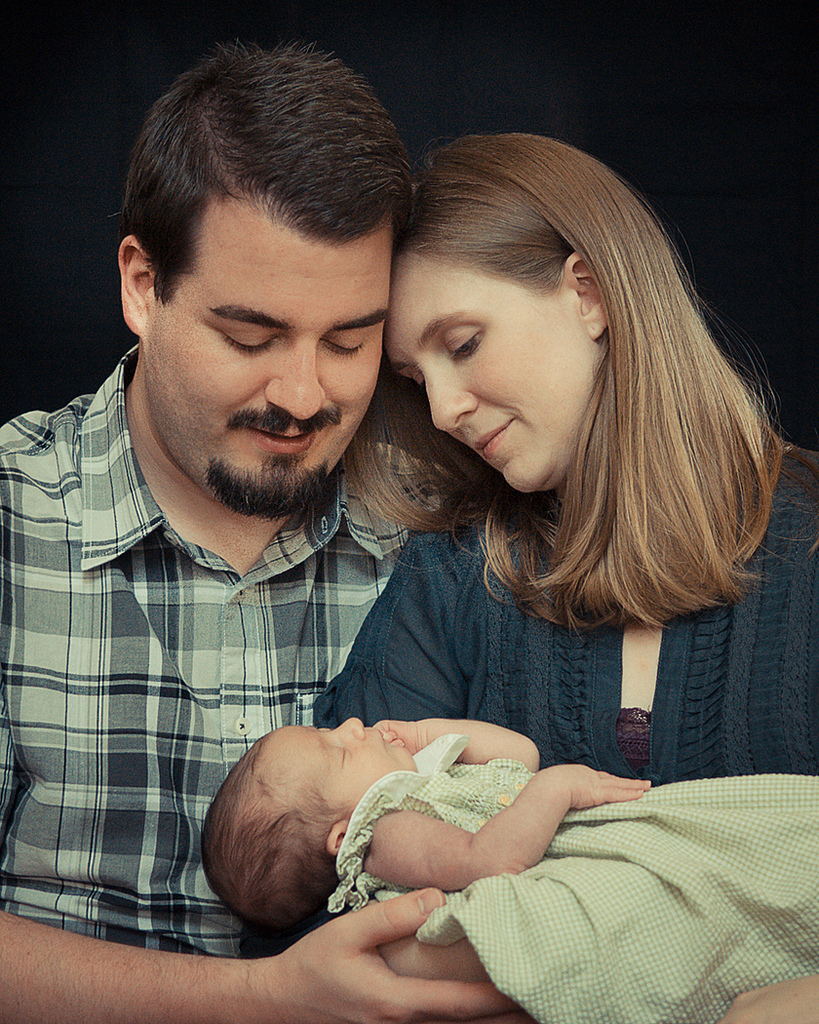Blog
Discovery in Divorce: What Documents Do I Need?

As you can imagine, one of the primary issues in a divorce is determining how to split up the assets and debts of the spouses. Given this fact, we are frequently asked by folks what sort of documentation they should gather before their consultation. While it usually is not necessary to have everything prepared before an initial consultation, we decided to create this post to give you a heads-up as to what documentation you are likely to need as the process unfolds.
Documentation Regarding Income:
- Employment Income – usually your pay stubs will suffice,
- Other Income Sources – recent statements or deposit documentation for other income sources such as trust/investment accounts, rental properties, retirement, disability, etc., is usually appropriate.
- Most Recent Tax Return – sometimes earlier returns will become necessary as well.
Deciding to Divorce in Virginia? Frequently Asked Questions!

Choosing the path of divorce can be a very emotional one. In this post we will provide a brief overview of some common questions and concerns.
Is there such thing as a “legal separation”?
- Unlike some other states, in Virginia there is nothing that can be filed with the court to certify that you and your spouse are “legally” separated. However, if you are separating, an attorney can advise you regarding what will constitute the “date of separation” and also what steps you can use to protect yourself during separation.
- Usually, when you ultimately file for divorce, the date that you began living in separate households is considered the date of separation. There are many exceptions to this; it is possible to be separate in the same household. You should speak with an attorney if you have additional questions regarding legal separation.
Adoptions: A Glance at the Different Types and Some Common Concerns

Choosing the route of adoption can be a very exciting, yet scary time for new parents. While there are many important details that you should familiarize yourself with if you are considering adoption, this post provides a quick overview—to make you aware of the types of adoptions and to address a few common concerns.
The First Step: Choosing the type of adoption that is applicable to you.
- Step-Parent Adoption: A step-parent adoption occurs when the adoptive parent is the spouse of the child’s biological mother or father. This adoption normally does not require a home study.
- Parental Placement Adoption: This type of adoption occurs when a birth parent directly places their child with you. There is no agency involved.
- Agency Adoption: This type of adoption occurs when a family chooses to use an agency to find a child. The agency helps the family with the adoption process and handles a lot of the common hurdles that adoptive families face.
- Close Relative Adoption: This type of adoption occurs when the child's grandparent, great-grandparent, adult nephew or niece, adult brother or sister, adult uncle or aunt, or adult great uncle or great aunt decide to adopt a child.
- International Adoption: This occurs when a family decides to adopt a child from outside the United States of America. This is usually done through an agency.
- Adult Adoption: This occurs when there is an adoption of someone over the age of 18.
- Special Needs Adoption: This adoption occurs when a family decides to adopt a child with special needs. There are assistance programs in place from the government to assist families who otherwise may be unable to adopt a child due to the expense involved.
The Virginia Code – Find What You Need Online

In today’s technological world, it comes as no surprise that almost everything is online. So, it should not surprise you to learn that the entire Virginia Code, in all its glory, is online with a user-friendly, searchable database.
What is the Virginia Code?
The Virginia Code is, simply put, the laws in Virginia. The Code is the collection of statutes that the legislature has created and amended over time. These written statutes (a.k.a. “code sections”) are laws that govern our society.
If you have ever been in criminal or traffic court, you have probably heard the Judge or the clerk announce to a defendant, “You have been charged with violating Section 18.2-xxxx of the Code”. That is a reference to one statute. But there are thousands, governing everything including crime, contract, divorce, custody, probate, licensing, insurance, adoption, etc.
Read moreDUI Investigations – A Brief Overview

In Virginia, if a police officer suspects you of driving under the influence (a.k.a. DUI or DWI), there are a few investigative techniques that will likely be used. This article will briefly explain these techniques, as well as a couple of issues that may arise if you are in fact arrested for DUI.
PRE-ARREST
Why Might an Officer Suspect you of DUI?
- Erratic Driving – swerving, driving too slow or too fast, disregarding traffic signs
- Odor of Alcohol – the officer smells alcohol when he approaches your window to talk with you
- Slurred Speech – the officer concludes that you are slurring your speech when you talk to him
- Admission of Drinking or Drug Use – if you admit to alcohol or drug use, the officer’s suspicion of intoxication will naturally increase
- Other Reasons – bloodshot eyes, anonymous tips, officer's personal observations, intoxication of your passengers, etc.
Have a Pending Civil or Criminal Case in Virginia? Check your Case Status Online

In Virginia, Courts across the Commonwealth have made it relatively easy to go online with your computer, tablet or smart phone and check the status of your pending criminal, civil, or divorce case. The amount of information provided depends on the type of case and the particular Court, but will usually include the Court dates, case numbers, filing dates, offense dates and arrest dates (if applicable). In some cases, the attorney’s names and the final disposition will also be posted online.
Read moreVirginia Child Support Guidelines: a Closer Look at the Ingredients

In Virginia, Court-ordered Child Support amounts are typically determined through the use of Virginia’s Child Support Guidelines.
The support guidelines are a creature of statute (Va. Code Section 20-108.2) and the Court is required to presume that the guideline amount is appropriate (Va. Code Section 20-108.1).
Read moreInjured in a Car Accident? Here are Some Quick Tips

When you or a loved one is involved in a motor vehicle accident, it is always an emotional and frightening experience. For that reason, it is important to consider a few things if this happens.
- Treat Your Injuries: first and foremost, you need to take care of yourself or your loved ones.
- Following an accident, it is wise to consider getting checked out by a doctor; even if you think you are fine, note that some injuries may not surface until many hours after an accident occurs.
- Ask for an ambulance to take you to the emergency room, especially if you know you’ve been seriously injured.
- Bring company—it is best to have a loved one there to support you while you are being examined and treated.
- Be honest—tell your physician about all of the pain/discomfort you are experiencing.
Domestic Protective Orders in Virginia: Powerful and Prevalent

In Virginia, you may be entitled to a domestic protective order if:
- You have been subject to “family abuse” committed by another,
- You continue to be in fear, and
- A protective order is necessary to prevent further abuse.
Charged with Domestic Assault and Battery? What You Should Know about the First Offender Program

In Virginia, if you are charged with Domestic Assault and Battery (Virginia Code Section 18.2-57.2) and have no previous convictions for this offense you may be entitled to relief from conviction under Virginia Code Section 18.2-57.3, commonly referred to as the “First Offender Program”. We would recommend that you speak with an experienced criminal defense attorney in order to discuss the details of the program, as well as your eligibility. Here are a few quick points:
How do I get into the First Offender Program?
- If you are eligible for the first offender and have been found guilty of domestic assault and battery (whether through pleading guilty, or following a trial), you can ask the Court to allow you to enter into the first offender program.
- If the Court grants your request, your case will be continued for at least 2 years. You will be placed on "probation" and will be obligated to perform various tasks.
Hiring Your Trial Lawyer - What to Look For

If you find yourself in need of a trial attorney, you are likely in the midst of a serious crisis. Whether you’ve been charged with a crime, been served with a divorce complaint, or been seriously injured by another’s negligence, the attorney you select to represent you can have a serious impact on the outcome of your case.
That being said, although you want to hire a trial lawyer as soon as possible, it is also important that you not rush your decision. Make sure you feel comfortable that the attorney you hire is right for your case.
Read moreDifficulties in Divorce: The Tale of Two Households

The price of separation can be one of the largest hurdles couples face during a divorce. Figuring out how to afford the operation costs of two different households is no easy task. Once the “marital residence” becomes a misnomer, husbands and wives are staring at the same income levels, but twice the bills. Two electric bills, two mortgages or rents, two homes to furnish, clean and repair, and sometimes, two daycare providers.
This is particularly difficult in a lot of situations because the spouses did not consider the cost of running two households. Given that most are overcome with emotion and anxiety during separation, it comes as no surprise that they haven’t first poured over their bank accounts to create a feasible budget for their “new” life. This financial neglect is common even in cases where the almighty dollar was in fact the root cause of marital discord.
Read moreDrug Possession Charges and the First Offender Program

In Virginia Courts, if you are charged with possession of narcotics and have no previous drug-related convictions you may be entitled to relief from conviction under Va. Code Section 18.2-251, commonly referred to as the “First Offender Program”. Be sure to ask your attorney about your eligibility.
How, you might ask?
Convince the Court to allow you to participate (a Judge is not required to allow you to enter into the program)—this can be done in a variety of ways, most commonly by an agreement with the Commonwealth’s Attorney, explanation of mitigating factors, or simply by entering a plea and advising the judge of your request to be placed into the First Offender Program.
Read more